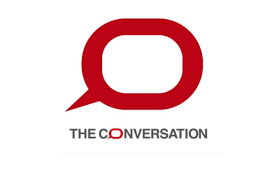What is The Conversation?

Articles published by The Conversation are influential in changing behaviour and attitudes. They are frequently used as a source for evidence-based information in classrooms, the workplace and among policymakers and legislators.
How to write for The Conversation
To be published by The Conversation you must be currently employed as a researcher or academic with a university or research institution. PhD candidates under supervision by an academic can also submit pieces but they don't currently publish articles from Masters students.
The process is simple. Visit the website and use your University of Aberdeen email address to verify that you work for an accredited institution.
As well as your name and job title, you will be asked to provide some information on your formal qualifications as, except in exceptional circumstances, authors are only accepted to write on subjects about which they have significant research expertise, even if it concerns a topic they are personally passionate about.
You will then be asked to submit a pitch.
What makes a good pitch?
One of the most important things to consider when pitching a feature story is to be as concise as possible. Brevity is the key to getting your pitch noticed so make sure you get straight to the point.
- Think about the audience
- Know the story you want to tell
- Introduce it with an engaging opening line
- Explain why it is a good fit for The Conversation
- Consider what supporting imagery you might be able to provide
- And follow the submission guidelines
What type of stories are they looking for?
The Conversation focuses on three priority areas:
- timely, evidence-based analysis of issues making the news, such as new research
- timeless, plain English 'explainers ' of complex issues
- in-depth series or specials or our regular hard evidence stories
If you don't already, make sure you start reading The Conversation to get a sense of what it publishes to maximise your chances of being commissioned. And before pitching, consider doing a keyword search to read what has already been published on your chosen topic.
What happens after I submit an idea?
First off, remember, not all pitches will be commissioned. There are multiple reasons why a pitch may not be accepted and it doesn't mean it's not a good idea. Work with the University's Communications team to see what other outlets your pitch might be suitable for and don't be put off pitching another idea to The Conversation in the future.
If they do like your pitch, you they will commission the piece and provide you with some editorial guidelines, including a wordcount and deadline.
Once written, be prepared to receive some feedback. The push and pull between editor and author is a process that should be welcomed rather than resisted in order to balance the expectations of the author with those of the audience and to ensure The Conversation's values are upheld.
The lead author must also give approval before publication of the article prior to publication, including headline, pictures and captions.
What happens once my article is published?
A free and open flow of information is central to The Conversation's Charter. All content is available free for republication via Creative Commons.
Your article will automatically appear on the University's News page and you are free to share it through your own channels. Make sure you let the University Communications team know you have been published as they will consider further opportunities to share it.
Once published you will also get access to some analytics to help you see the number of reads and location of readers, all of which can be useful in future funding bids.
